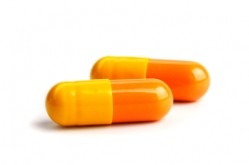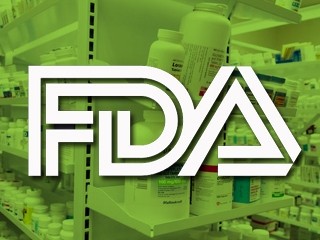Drug-tainted weight loss, bodybuilding, and sexual enhancement products top DS recall lists

Recalls of these tainted products, which masquerade as dietary supplements, accounted for 50% of all class I recalls in the United States from January 1, 2004, through December 19, 2012, report scientists in JAMA Internal Medicine.
In addition, the vast majority of these products (74%) were manufactured in the US, reported Ziv Harel, MD, from St Michael’s Hospital in Canada, and co-workers.
“Recalls of dietary supplements containing unapproved pharmaceutical ingredients are increasing,” they wrote. “With over 150 million US residents consuming these products, the challenges posed by this growing and unregulated industry are enormous.
“To protect the health and safety of the public, increased efforts are needed to regulate this industry through more stringent enforcement and a standard of regulation similar to that for pharmaceuticals.
“Keeping the status quo may taint the dietary supplement industry as a whole.”
Challenging the conclusions
Cara Welch, PhD, senior vice president of scientific and regulatory affairs for the Natural Products Association (NPA) told NutraIngredients-USA that there were three main problems with the article:
“The authors continually call dietary supplements an unregulated industry, and it is not an unregulated industry,” she said. “Second, the majority of the industry fully supports full enforcement of the regulations as they currently stand. Finally, this talk of active pharmaceutical ingredients, at that point they become unapproved new drugs and not dietary ingredients, and need to be classified as such.”
‘This is not about the regulation of drugs or supplements, this is criminal activity’
Duffy MacKay, ND, vice president of scientific and regulatory affairs for the Council of Responsible Nutrition (CRN), added: “It’s important to note that CRN is equally concerned that there are products out there with hidden drugs in them. Having said that, FDA does classify all of these as drug recalls, and it seems the author tried to flip that over. We could flip it back and ask if the drug industry needs to tighten its regulations to stop its ingredients spilling over into other products.
“But actually, this is not about the regulation of drugs or supplements, this is criminal activity. If we change the law, criminals will continue to break the law.
Dr Mackay also noted that the numbers showed that there were 117 recalls in 2010, 30 in 2011, and 16 in 2012.
“This shows that FDA enforcement and DSHEA works. At the end of 2010, [FDA Commissioner] Dr Hamburg announced that targeting tainted weight loss, bodybuilding and sexual enhancement products was a priority. The numbers show that the problem is being solved.”
Consumers can also exercise common sense, he said. "Tainted products in these three categories are often associated with outlandish claims, and a little common sense can protect consumers. If the claim sounds too good to be true, then it most likely is, or if the claims sound drug-like, then those are red flags, signals to not take these products."
Looking at the numbers
Harel and colleagues analyzed data from January 2004 through December 2012, and found that 465 drugs were subject to a class I recall in the US. “Class I recalls are those for which there is a reasonable probability that the use of or exposure to a product will cause serious adverse health consequences or death,” explained the authors.

Fifty-one percent of these were for ‘dietary supplements’, with weight loss, sexual enhancement, and bodybuilding products accounting for 27%, 40%, and 31%, respectively.
“The FDA Tainted Supplement Report listed 332 adulterated products since December 2007. Only 222 of these products (69%) were recalled by the FDA,” they added.
‘Regulate supplements like drugs’
In an accompanying Editor’s Note, Mitchell Katz, MD, incumbent director of the Los Angeles County Department of Health Services, wrote: “Although supplements are regulated by the US Food and Drug Administration (FDA) under the Dietary Supplement Health and Education Act, there is no requirement for supplement manufacturers to demonstrate efficacy or safety of their products prior to marketing them.
“However, companies may not include unapproved ingredients. It turns out that even this minimal requirement is not fulfilled.
“Given the limited regulation of these products, it is likely that the number of recalls grossly underestimates the number of products on sale with unapproved ingredients.
“Dietary supplements should be treated with the same rigor as pharmaceutical drugs and with the same goal: to protect consumer health.”
Source: JAMA Internal Medicine
Published online ahead of print, doi: 10.1001/jamainternmed.2013.379
“The Frequency and Characteristics of Dietary Supplement Recalls in the United States”
Authors: Z. Harel, S. Harel, R. Wald, M. Mamdani, C.M. Bell
Editor’s Note: JAMA Internal Medicine
Published online ahead of print, doi:10.1001/jamainternmed.2013.415
“How Can We Know if Supplements Are Safe if We Do Not Know What Is in Them?”
Authors: M.H. Katz










